In Benghazi they are “chanting in the streets”
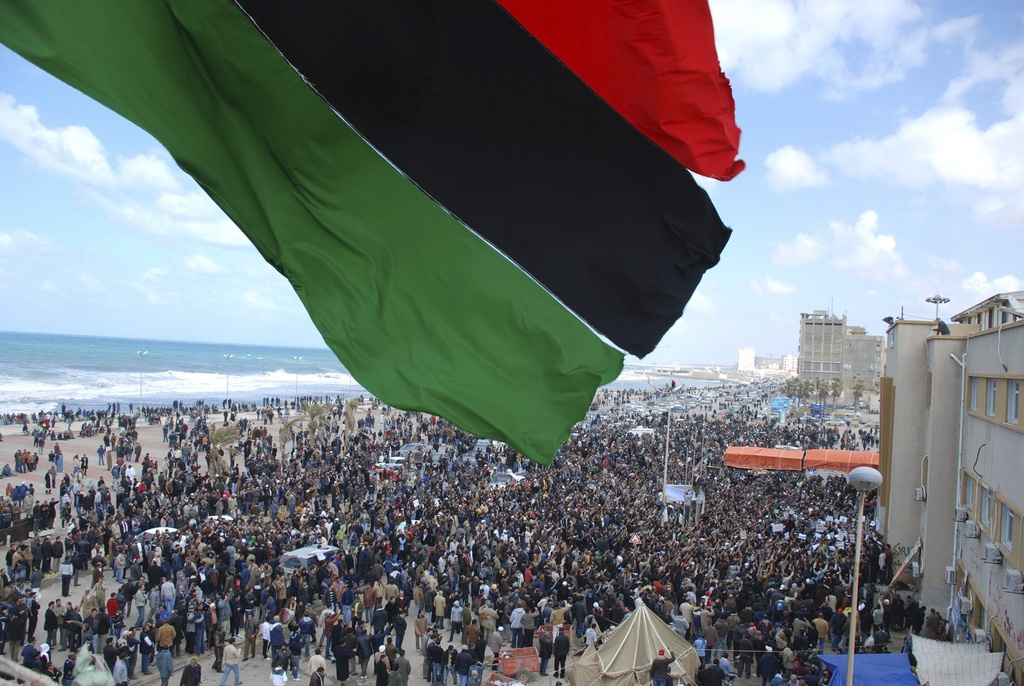
People in the eastern Libyan city of Benghazi are celebrating after a week of clashes which appear to have pushed out forces loyal to Libyan leader Moammar Gaddafi.
But their success has come at a heavy price in human life, and it is not clear what the Gaddafi regime will now do, Ahmed Bentaher, a doctor at the Jalaa hospital in Benghazi, told swissinfo.ch on Monday.
More than 300 people have been killed in the city since the clashes started, with 61 dead – including a three-year-old child – on Sunday, the worst day, he said. More than 2,000 people have been injured and doctors are still working their way down the operation lists, although medical supplies are beginning to run out.
Bentaher, who spent several years in Switzerland and returned to Libya only three months ago, played down the risk of speaking to the foreign media. For him it is important for the world to know what is happening.
swissinfo.ch: How is the situation in Benghazi?
Ahmed Bentaher: Right now after the clashes yesterday, the special military forces joined the protestors and they overcame Gaddafi’s private militias and they have got control of the city. The paramilitary forces are not in the city any more.
swissinfo.ch: Is there a danger that the security forces will come back?
A.B.: This is still a possibility. But now the people are just chanting in the streets. They are celebrating that after 42 years we are now free of the Gaddafi regime.
swissinfo.ch: What kind of people have been demonstrating?
A.B.: At first they were lawyers and judges and doctors and engineers – the intellectual élite. It was a very peaceful demonstration in the first place. Then the regime arrested one of the main organisers and people gathered in front of the internal security building asking for him to be freed. This was the start of the demonstration.
swissinfo.ch: How is it being organised?
A.B.: In Libya there is no freedom to make parties or associations. As far as I know, all the people are demonstrating. They have no clear political path or organisations. Maybe it will come now after they have got freedom. They will have the right to associate. We are calling for that and we are hoping that we’ll be free like any free country in the world.
swissinfo.ch: People in the West are saying Benghazi is a stronghold of Islamists. Is this true?
A.B.: This is what Gaddafi and his family right now are trying to say. But what I saw is that people are calling for freedom, calling for unity, calling for a constitution. We are supposed to be a wealthy country, but people are very poor here. Islam is the religion of the country. Ninety-nine per cent are Muslims.
swissinfo.ch: But perhaps some people want to set up a caliphate?
A.B.: I haven’t heard that. We are saying we are one country. We want change, we want unity. We don’t want any damage, we don’t want violence in the city. This is the slogan now. People are going into the street, cleaning the streets, gathering together, making committees…
swissinfo.ch: What is happening in Tripoli?
A.B.: We are following this with great concern. Colleagues there tell me there are a huge number of casualties. By the middle of the day there were about 60 dead in Tripoli city, and there are demonstrations around Tripoli as well.
swissinfo.ch: Do you think Gaddafi and his clan have support and will be able to fight back?
A.B.: It’s not a big clan. What makes the Gaddafi clan dangerous is that they have weapons, they are well equipped. They are based in the middle of Libya, in Sirt. Now we have started in the east and in the west, and we think there will be some clashes around Sirt.
swissinfo.ch: Is there a difference in attitudes between people in the cities and those living closer to their clans?
A.B.: Yes, of course, but the one common feature among Libyans is that they want one country. The Warfala and other big clans around are joining the protests against the Gaddafi regime because they have suffered a lot from it.
The Gaddafi clan will have to look for a peaceful solution. They are not big enough to fight against all the clans out there.
swissinfo.ch: What’s going to happen to Moammar Gaddafi and his sons?
A.B.: For me personally, if they leave the country and leave us in freedom and peace, that’s the best for the country, but if they choose to fight back there will be a huge massacre, worse than we have right now.
We are hearing rumours now in Benghazi that there will be air strikes, but we don’t know. It’s all rumours: that they are fighting here, they are shooting there – but on the ground there is nothing. The possibility is there, the people believe Gaddafi could do something like this.
swissinfo.ch: Are you afraid?
A.B.: Yes. Sure. One evening when I was in the hospital, African militias [mercenaries fighting for Gaddafi] came to the hospital. They wanted to kill the injured. Can you imagine how brutal Gaddafi can be?
There is no red line. In Libya Gaddafi has absolute power. I appeal to the international community to intervene seriously.
swissinfo.ch: What can they do?
A.B.: If you see what happened in Darfur, they sent forces to protect the civilians. If the United States puts pressure, if the European Community puts pressure, maybe he will go. The United Nations should intervene with all the possibilities that they have to communicate with the Libyan regime and Gaddafi personally.
swissinfo.ch: What kind of impact did [Sunday night’s] television address by Seif al-Islam [Gaddafi’s “reformist” son] have?
A.B.: It was very depressing. He waved his index finger and threatened the Libyan people that if they don’t obey he will come with the military. I don’t know what kind of guy he is now. He used to be like a reformer. If you see him now, he is threatening to kill us.
People are now insisting more than ever that they don’t want to see Gaddafi’s face or his son’s face.
I was very happy when I heard he was coming to the television. I thought he could make a good change. It was really depressing. This is not the way to communicate with your people.
Swiss foreign minister Micheline Calmy-Rey has called on the Libyan leadership to respect the basic rights of the people.
In a written statement she said she was “deeply concerned“ at the acts of violence against demonstrators in North Africa and the Middle East.
The ministry is in permanent contact with the Swiss embassy in Tripoli, she said. But it is hard to get reliable independent information.
There are 46 Swiss citizens registered at the embassy, most of them dual nationals. So far there have been no reports of any Swiss citizens in difficulties as a result of the protests.
The ministry advises any Swiss currently in Libya to avoid crowds and to try to leave the east of the country if possible.
Switzerland announced on Monday that the preparatory work of the arbitration tribunal charged with examining the “Hannibal Gaddafi affair” has been suspended.
The tribunal is supposed to investigate the circumstances of the arrest of Moammar Gaddafi’s son Hannibal in Geneva in 2008, on suspicion of mistreating two servants.
The arrest triggered retaliation from Libya; among other things, two Swiss businessmen were prevented from leaving the country and one was eventually jailed.
The principle of the tribunal was first agreed in August 2009, but it was only last week that Libya announced the two sides had agreed on a chairman.
The Swiss foreign ministry said the decision to suspend its work had been taken in connection with current events in Libya.
Calmy-Rey alluded to Switzerland’s problems with Libya in her own comments.
“Given its own experience with the Tripoli regime, Switzerland is very much aware of the courage being shown by these men and women going into the streets in Libya and demanding their democratic rights,” she said.

In compliance with the JTI standards
More: SWI swissinfo.ch certified by the Journalism Trust Initiative
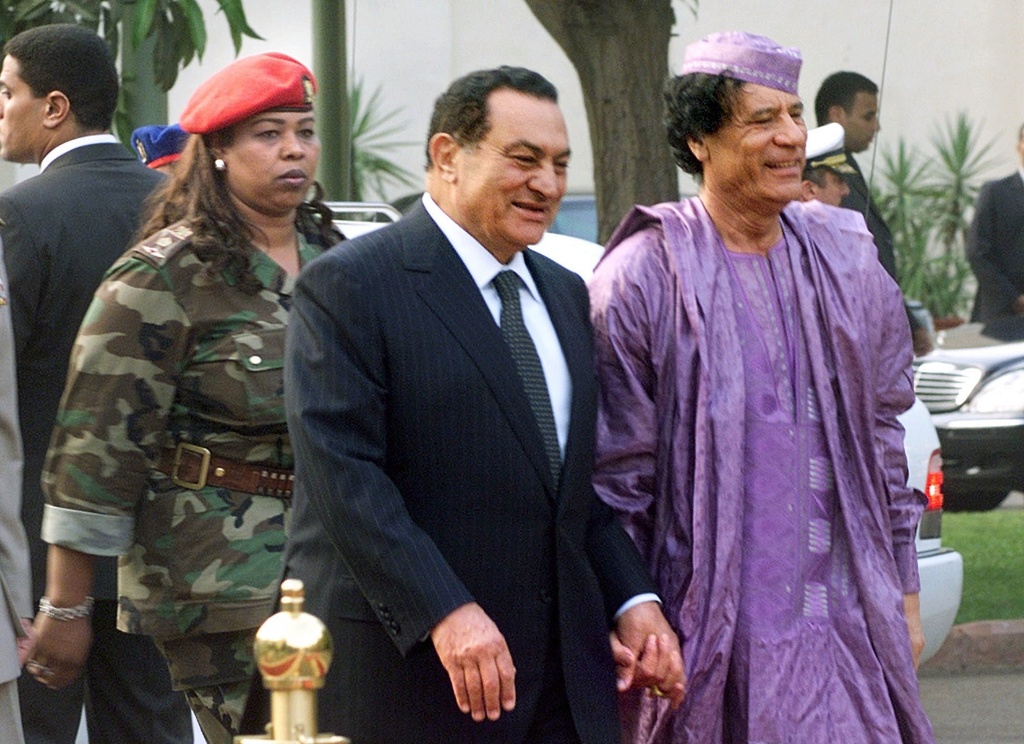
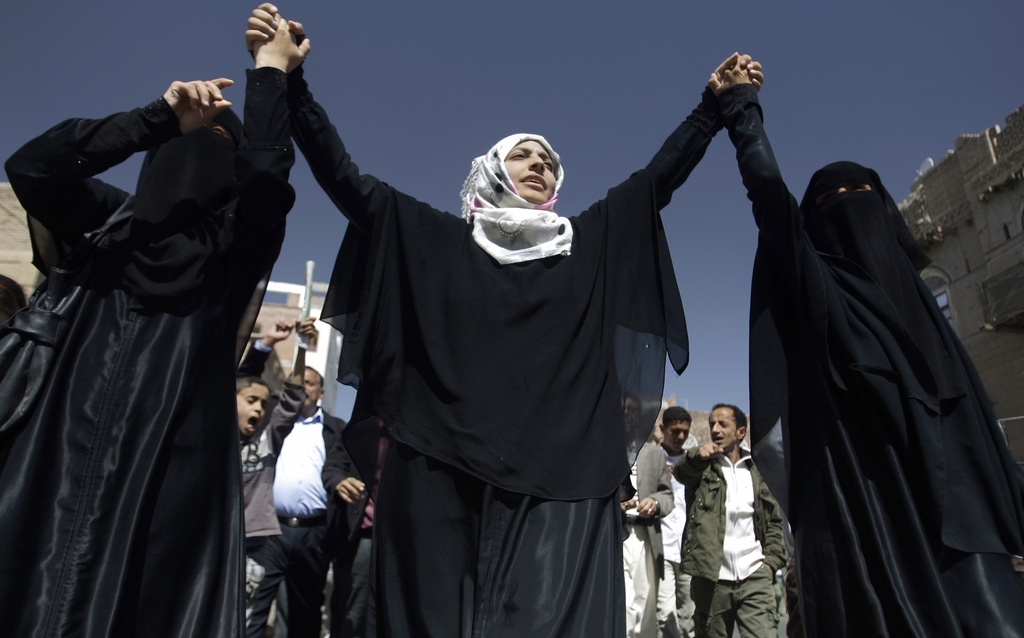
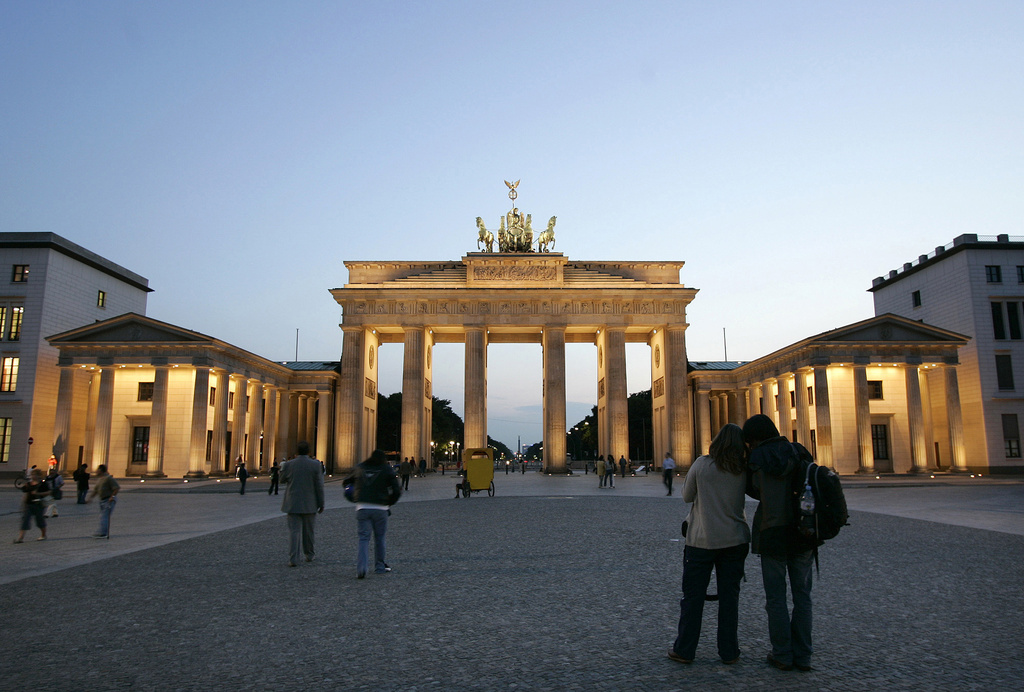
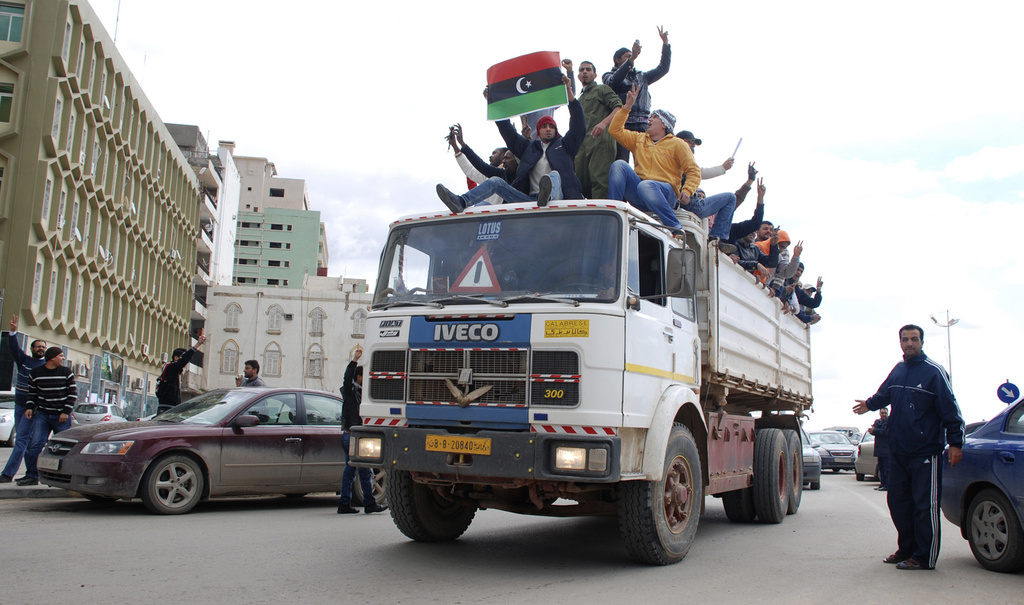
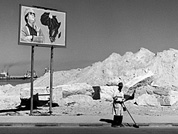
You can find an overview of ongoing debates with our journalists here. Please join us!
If you want to start a conversation about a topic raised in this article or want to report factual errors, email us at english@swissinfo.ch.